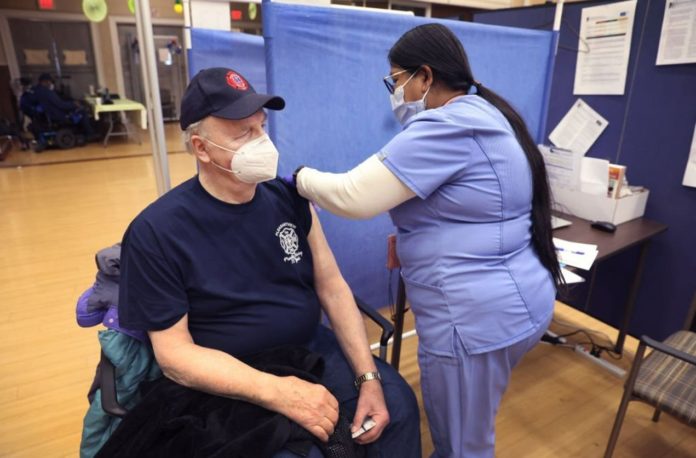Healthy people who have contracted COVID-19 also seem to have a higher risk of diabetes, according to a new study.
The study, published in The Lancet Diabetes & Endocrinology, discovered that those who recovered from COVID-19 had a 40% increased risk of developing diabetes.
The study does not say that COVID-19 causes diabetes, while that could be the case in the future, but rather that there appears to be a relationship between the two diseases.
Some public health experts say that the results should be interpreted with caution because the study only looked at people who worked for the U. S. Department of Veterans Affairs (VA) — a group that, on average, is older, has more financial hardship, and has higher rates of underlying illness — and thus may not be representative of the general population.
COVID-19 is suspected by many endocrinologists to harm the pancreas and cause problems with blood sugar regulation, which could lead to diabetes.
As explained by Dr. Camillo Ricordi, the director of the Diabetes Research Institute: “We are continuing to learn about the full impact of this virus and its potential to cause long-term side effects, including diabetes.”
The study looked at the health data of 181,280 US Department of Veterans Affairs individuals diagnosed with COVID between March 1, 2020, and September 30, 2021.
Their medical records were matched to those of 4.1 million non-COVID VA patients and another 4.28 million patients treated between 2018 and 2019.
The researchers discovered that persons with COVID-19 had a 40% higher likelihood of being diagnosed with Type 2 diabetes and were more likely to be prescribed medication to assist manage their blood sugar levels.
Though the risk of diabetes was higher in people who had COVID-19-related illnesses that were more severe, it was also evident in patients who had less severe cases.
After recovering from COVID-19, the vast majority of patients were diagnosed with diabetes, although it was Type 2 diabetes rather than Type 1 diabetes.
Furthermore, those who had a low risk of diabetes prior to the pandemic tended to have a higher risk after COVID-19.
Glycometabolic abnormalities have previously been identified in SARS-CoV-2 individuals who are actively infected.
Type 2 diabetes, according to the researchers, could be a component of long COVID, a post-infection disease that produces persistent symptoms and health problems.
The study had limitations, including the fact that the group was primarily made up of older white males, and the findings will need to be confirmed by further research.
However, as other specialists have pointed out, the virus that causes COVID, SARS-CoV-2, can attack the pancreas and insulin-producing cells.
This could affect how insulin is released by the pancreas, thus increasing the risk of diabetes.
“In case of type 2 diabetes in subjects already at risk, this could become evident within months,” Ricordi said.
Growing data suggest that COVID-19 may cause autoimmune responses in some people, in which the body destroys its own cells.
“This has shown to lead to the destruction of cells in the pancreas, which are vital to producing insulin,” Ricordi added.
Signs and symptoms of diabetes after COVID?
Increased thirst and hunger, frequent urination, unexplained weight loss, fatigue, and blurry vision are all early indicators of diabetes, according to Ricordi.
If you had COVID-19 and are experiencing any of these symptoms, it’s worth requesting your doctor to run a diabetes test on you, especially if you have any predisposing factors or a family history of diabetes.
Ricordi said: “If any of these signs or symptoms present, an individual should visit their primary care physician.”
Source: 10.1016/S2213-8587(22)00044-4
Image Credit: Getty
You were reading: Did you catch COVID? Which disease threatens you by 40% a year later – signs and symptoms
